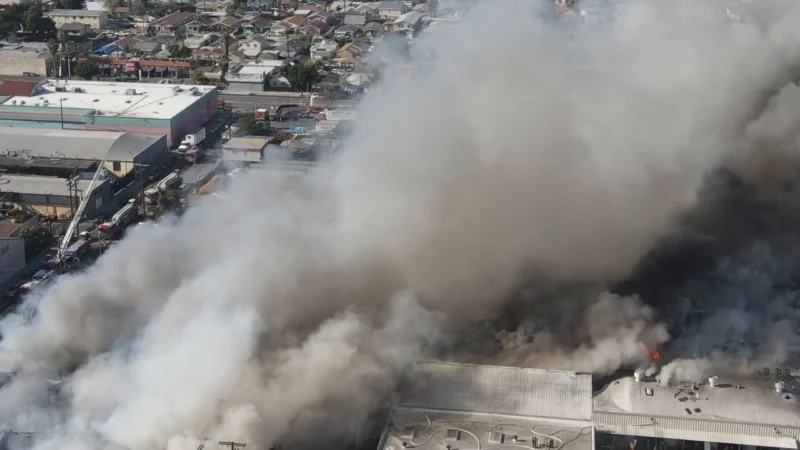How to Prepare Your Boiler for an Inspection
Periodic boiler inspections are necessary to ensure that all equipment and components are operating safely and properly. When removing a boiler from service, the proper procedures should be used to reduce thermal stress and prevent sludge from settling and “baking on” waterside surfaces.
If a boiler is cooled too rapidly or unevenly, the extreme expansion and contraction stress can cause leaks to develop on rolled tube ends as well as damage firebrick or refractory material. Rapid cooling and draining can also cause any suspended solids in the boiler water to form hard, difficult-to-remove deposits. These deposits not only reduce heat transfer efficiency but could also lead to a false interpretation of the treatment program results.
Preparing the Boiler for Shutdown
- Schedule a time when shutting down the boiler will have the least effect on operations.
- Make sure the boiler operator and other maintenance personnel are available to perform any required testing of controls and safety devices.
- Once scheduled, inform the boiler operator and maintenance staff of the date and time and put out a notice to production personnel.
- Inform your water treatment company and boiler inspector of the inspection date and ask for additional preparation advice and requirements.
- Consult boiler operating instructions for any special shutdown procedures.
- Post the current certificate of inspection.
- For two to three days prior to shutdown, increase the continuous blowdown rate by 10 to 20% and at least double the bottom blowdown rate.
- During this same time, maintain the alkalinity level at the high end of the control range and double the dosage of any supplemental dispersant.
- Follow lockout/tagout procedures for steam, water, and fuel valves, the ignition system, electrical disconnects, and other related hazards.
- Clear clutter and debris out of the boiler room for safety and to allow the boiler inspector access to all equipment.
- Have new gaskets ready for all openings. (Do not reuse gaskets.)
Cooling the Boiler
- Immediately after the boiler is taken off line, initiate heavy surface blowdown. Bottom blow frequently, one gauge glass at a time.
- Use hot feedwater, not cold makeup, to replace the water blown down.
- Continue heavy surface blowdown and frequent bottom blowdown while the boiler is cooling. To minimize thermal stress, the rate of cooling should not exceed 100ºF per hour. The draft fan(s) can be used to cool the fireside.
- When the boiler pressure is reduced to 5 to 10 psig, open a vent valve to avoid creating a vacuum. A strong vacuum can damage gauges, gaskets, and manhole covers. Vent until no steam is being released.
- Drain the boiler by opening the drain valves.
- It may beneficial to refill and drain boilers that have been operated with high hardness feedwater before washing out.
Washing Out the Boiler
- Immediately after draining, remove the manhole and handhole covers necessary for access and inspection.
- Conduct a quick, initial inspection before any sludge deposits have had time to dry.
- Use this inspection to note any patterns in deposit thickness or color. This information could indicate why the deposit formed and prove helpful in providing corrective measures.
- As soon as the initial inspection is completed, wash the waterside surfaces using a high pressure water hose. For best results, this should be done while the boiler is still wet. Consult with the boiler inspector first because some inspectors prefer to leave scale and sludge in the boiler for their inspection.
- Firetube Boilers: Start the wash out procedure from the top manhole. Then wash out the lower and side sections using the handholes. If at all possible, visually inspect the bottom of the boiler to ensure that all the sludge and loose scale is washed out. Do not allow any buildup to remain in the bottom.
- Watertube Boilers: Wash out the steam drum first. Remove any plates or steam separators which block tube access. Wash out each tube individually to remove any loose sludge or scale and to ensure there is no blockage. To prevent overheating and possible tube failure, any blockages or partial blockages must be removed before placing the boiler back in service.
- Wash out the bottom blowdown lines and make sure they are free of obstructions.
Chem-Aqua Can Help Keep Your Boiler Operating Efficiently
In order to keep boilers operating efficiently, they must be inspected regularly. You can rely on the experts at Chem-Aqua to help. Chem-Aqua is the go-to resource for practical and valuable information on water treatment, a critical part of the preventative maintenance program for any boiler system. A customized water treatment solution from Chem-Aqua helps protect your boiler system from the harmful effects of corrosion, scale, and carryover, ensuring safe, reliable, and cost-effective steam production. Chem-Aqua can provide effective treatment programs and both online and offline cleaning programs for all types of boiler system designs and applications, including fossil fuel and waste-fired boilers, electric boilers, and steam generators.








